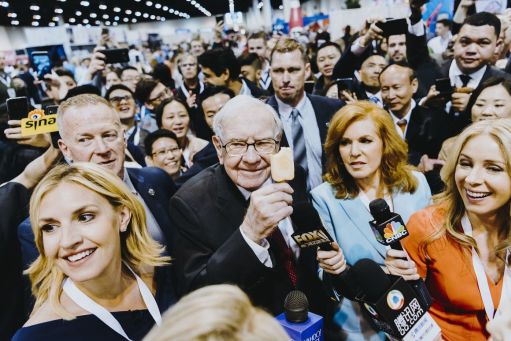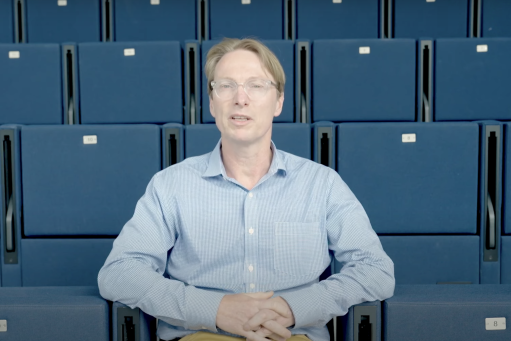When Joe Biden is sworn in as the 46th US president, he will lead a country with rising COVID-19 cases, concern about the state of the economy, and a political divide among its people.
In an engaging discussion, Dean Emeritus Glenn Hubbard, Ray Horton, the Frank R. Lautenberg Professor Emeritus of Ethics and Corporate Governance, and Tano Santos, the David L. and Elsie M. Dodd Professor of Finance, examined the political and economic realities the incoming Biden administration will face in a country that has been changed by four years of a Trump presidency.
Moderated by CBS student, Knight-Bagehot Fellow, and Mother Jones reporter Hannah Levintova '21, the three professors, who co-teach the popular Modern Political Economy class, began by assessing whether the nation should be hopeful or cynical about the Biden administration’s plans to address the pandemic and its effect on the economy.
Hubbard said he would feel sense of optimism about the coming year if Biden’s approach started with science and if future lockdowns are “modest and smart” and done in concert with contact tracing and testing.
Turning to the ailing economy, Hubbard said that a new fiscal relief package would cost around $1 trillion, which would be less than the CARES Act and therefore more palatable to the new Congress.
“I think it’s passable, even if we have a Democratic president and Republican Senate,” he said.
Hubbard cautioned against making too close of a comparison of the current economic downturn to the 2008 housing crisis that confronted President Barack Obama at the start of his first term.
“There is not a financial sector that is in trouble, no household balance sheets that are decimated, or excessive investment,” Hubbard said. “In fact, there’s a lot of pent-up demand. I think if we get it right on policy and on tone, and especially on science, we will get out of this in the next year.”
Santos said that the pandemic’s effect on the economy is much more widespread than the 2008 crisis and that making changes to the way small and medium sized business receive aid should be a key component to Biden’s policy initiatives.
“The problem is that we have myriad small businesses that have suffered enormous losses,” Santos said. “We’re helping them by extending loans, but lending through the Main Street Lending facility that the Fed set up remains pitifully low. But also, it will saddle these business with more debt when what they need is equity.”
Santos said that Biden will also have to weigh more heavy-handed approaches toward more lockdowns against recent promising news that a COVID-19 vaccine could be available in the coming year.
“I think the choice here is quite stark,” Santos said. “On one hand, it is reasonable to say, ‘Let’s minimize the number of cases because a vaccine is coming our way,’ but of course the economic costs of lockdowns are enormous. Or, would we implement a more fine-tuned policy of protecting at-risk groups to minimize cases while we wait for a vaccine.”
Regarding foreign policy, the panel discussed the choices Biden administration faces as it manages American interests amid the continuing rise of China as a global economic and military power.
Santos put the American dilemma with China into historical context, noting the different approaches to managing geopolitical power taken by his native Spain and the United Kingdom as their empires declined.
“At the peak of its power in the 17th century, Spain confronted several strategic challenges and decided to throw everything at those challenges with disastrous results,” Santos said. “Instead, compare Britain in the aftermath of World War I and the realization of the British political establishment of the waning power of the UK, which lead to an implicit choice of adopting a realistic policy of accommodation.”
The panel also offered analysis of the persistence of Trumpism in US politics, as more than 70 million people voted for the sitting president, who won swing states such as Ohio and Florida.
Horton divided the Trump-supporting electorate into three separate tranches. The first are industrial workers who have faced 40 years of wage stagnation and automation.
“These are people who had gotten used to the post-war economy and rising wages and increased benefits,” Horton said.
The second group, Horton said, support Trump because their sense of American values and culture is being challenged on a variety of fronts, including race, ethnicity, gender, and sexual orientation.
Finally, Horton said people were motived to vote for Trump due to a perception that Washington is indeed a “swamp” and paralyzed by partisanship.
“All they really needed to get going was a strongman to set them off,” he said. “I see (Trumpism) as a long time coming, and as evidenced by the election, it’s going to be a long time going away.”
Hubbard agreed, noting that unless the nation addresses the problem of people who find it difficult to participate in the modern economy and feel looked down upon, Trumpism will continue to be an active part of American politics.



